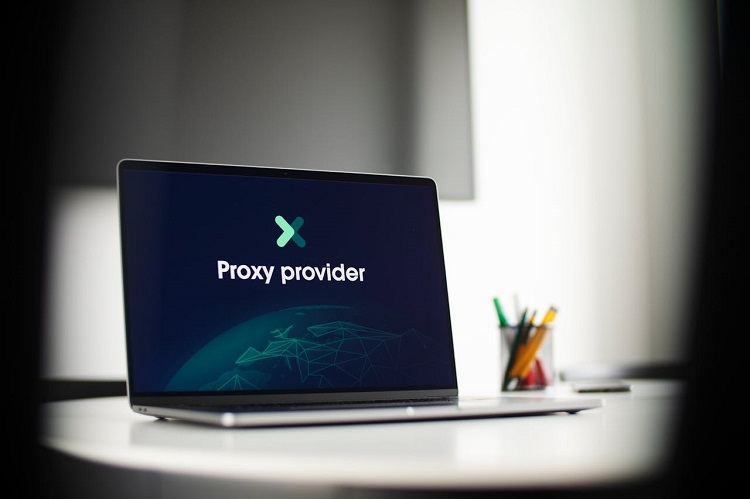In today’s highly connected and data-driven economy, staying ahead of the competition often means going beyond traditional business tools. Companies are increasingly turning to technical solutions that allow them to manage their operations more efficiently and securely. One of these tools—often overlooked outside of IT circles—is the proxy server.
Though proxies are frequently associated with privacy and cybersecurity, their applications in business go far deeper. From market research to security, proxies are becoming an essential part of digital strategy for organizations of all sizes.
Table of Contents
What Are Proxies and How Do They Work?
A proxy server acts as an intermediary between a user and the internet. Instead of connecting directly to a website or service, a user connects through the proxy, which then forwards the request. The website or server responds to the proxy, which relays the data back to the user. This detour helps mask the user’s IP address and can provide added layers of functionality and security.
Depending on the setup, proxies can be configured to route traffic through different regions, anonymize browsing data, or filter traffic based on security policies. Businesses can choose from several types of proxies, such as data center proxies, residential proxies, mobile proxies, or rotating proxies—each with unique use cases and advantages.
Why Businesses Are Using Proxies
1. Market Research and Competitive Intelligence
In the age of digital commerce, having access to accurate, real-time market data is invaluable. Businesses often use proxies to scrape data from competitor websites, aggregators, or review platforms. This includes monitoring pricing changes, product availability, customer sentiment, and promotional trends.
Scraping data directly from a competitor’s site without a proxy can lead to IP bans or blocks due to rate limiting or geo-restrictions. Proxies allow companies to collect data at scale without being detected, ensuring they stay informed and responsive to market shifts.
2. Ad Verification and Brand Protection
Online advertising fraud is a growing concern, with companies losing billions annually to fake impressions, fraudulent clicks, and misrepresented ad placements. To address this, businesses use proxies to verify their ads are being displayed correctly and reaching the intended audience.
By using proxies to simulate users from different locations or devices, advertisers can ensure their campaigns are not being misused or spoofed. This also helps in detecting brand impersonation or malicious content associated with a company’s name or product.
3. Testing and Quality Assurance
Companies that operate globally often need to test how their websites or applications appear and function across different regions. Proxies allow teams to simulate access from different countries, enabling comprehensive testing of geo-specific features, language translations, currency displays, or local regulations.
This is especially important for eCommerce platforms or SaaS companies looking to ensure a consistent and functional experience for all users, regardless of location.
4. Cybersecurity and Network Control
Security teams frequently use proxies as a defensive measure to monitor and filter outbound and inbound traffic. Proxies can detect suspicious activities such as malware downloads, unauthorized access attempts, or data exfiltration. They can also enforce company policies by blocking access to malicious or non-work-related sites.
In addition, proxies help reduce the attack surface by hiding the IP addresses of internal systems, making it harder for malicious actors to target them directly.
5. Managing Social Media and Automation
Marketing departments often manage multiple accounts across various social platforms, whether for customer service, community engagement, or brand promotion. Many social media platforms have strict rate limits and policies against automated behavior. Using proxies helps social media managers spread activity across different IPs, reducing the risk of account bans.
Proxies are also essential in automating tasks like posting content, gathering engagement metrics, or tracking brand mentions—tasks that are difficult to perform at scale from a single IP address.
Choosing the Right Proxy Solution
Not all proxies are created equal. Businesses need to evaluate their needs carefully before selecting a provider. Factors to consider include:
- Speed and reliability – Essential for applications like scraping or real-time monitoring.
- Geographic coverage – Important for accessing region-specific content or testing localized user experiences.
- Security protocols – To ensure encrypted and private connections.
- Ethical sourcing – Residential and mobile proxies should be legally obtained and transparently managed.
Finding a reputable provider is a key part of the equation. If you’re in the process of comparing options, you may want to consult resources like this review, which breaks down the strengths and weaknesses of various proxy services in the market.
Ethical and Legal Considerations
While proxies offer a range of powerful capabilities, it’s crucial for businesses to remain aware of ethical boundaries and legal compliance. Scraping data, for example, must respect terms of service and avoid violating intellectual property rights. Similarly, automated advertising verification should be conducted within the guidelines of advertising platforms.
Using proxies responsibly not only protects your organization from legal trouble but also promotes ethical digital practices across the board.
Final Thoughts
Proxies are no longer just tools for tech-savvy individuals—they’ve become integral to how modern businesses operate in a digital-first environment. Whether you’re conducting competitive research, ensuring brand safety, improving your global user experience, or protecting your network, proxies offer the flexibility and control businesses need to navigate today’s digital challenges.
As more companies embrace automation, data-driven decision-making, and global outreach, proxy servers will continue to play a pivotal role in how organizations collect information, protect assets, and maintain a competitive edge.

